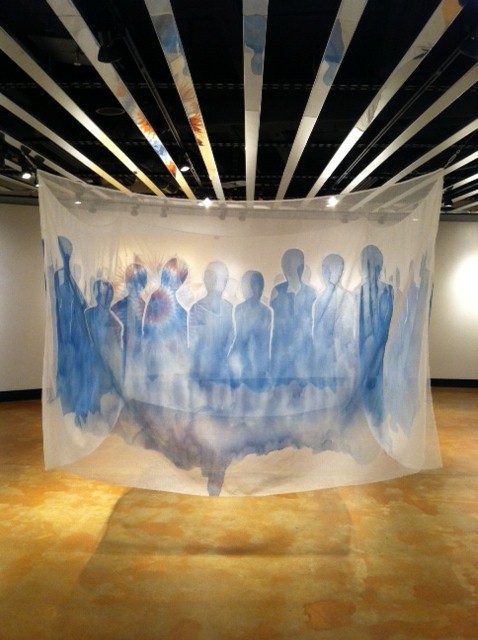
(for Stephen, Geoffrey, Vanessa, Lawrence)
It would have been a dragon, this monstrous jet,
two hundred years ago, to the father and little boy
come out for a stroll, had they seen it go screeching down
into the sunset with swept back wings downglinting
as their words rose like drowned twigs from a stream,
the little boy exclaiming, the father agreeing.
They would have fled in terror what we take in stride
since we live near an airport and have rendezvoused
with sun and horizon here too often to fear
that this great beast might shatter, his smoky fires dim
the park, touched by the sun's last shining, we've come to see.
By the dark-mortared wall, whose chalk-white stones protect
this place from the roaring fuming freeway beneath us,
we can look far over its asphalt and across suburban roofs
at how the jet plane now small and tranquil is sinking,
winking the Ruby of its landing light, in the last
seconds before it touches the earth beneath our horizon--
and we listen until it's touched safely down like the sun,
till silence tells us it's landed, as darkness tells us
that the trillion hydrogen bombs of our sun eyeballing space
to light and warm us this day have held their peace,
as firmness tells feet that the earth, whose sensitive crust’s
light quiver would bury us in our buildings, now smoothly
turns on appointed rounds as it brings this smoky city
gliding through sunset into starlit night, as that dazzle of
cars weaving through traffic snarls and homing on supper
smells
tells us it's time to be strolling back home on the safe
sidewalks of this suburb-- where bears and panthers, flood and
fire and that fearful monster the Wild Osage, whose blood
runs in our veins, ranged these savage Woodlands hundreds
of years ago, before the walks were made safe for us to enjoy
this zoo of smoky dragons now swarming from our best brains.
--Carter Revard (1931-1922), Osage poet, academic, and professor, from How the Songs Come Down: New and Selected Poems







